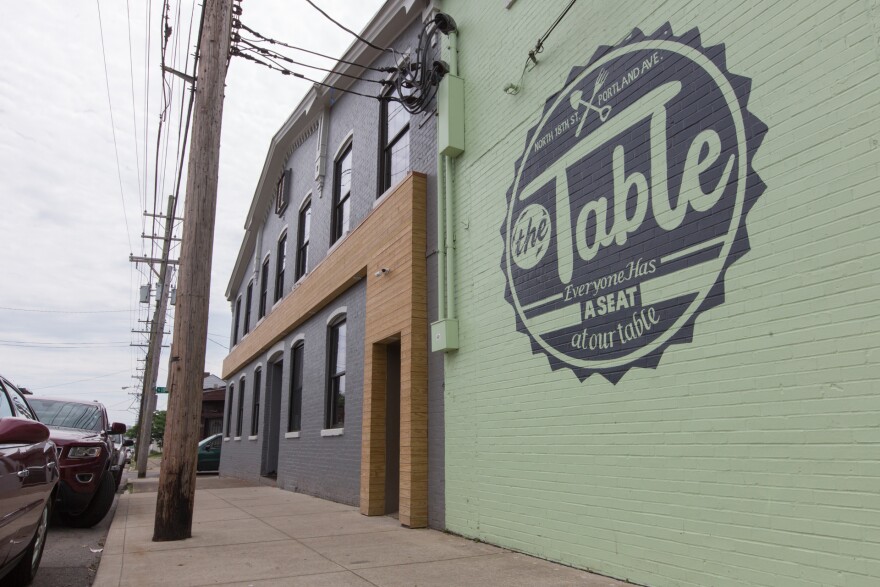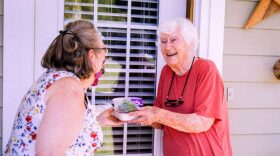Today is Giving Tuesday. It's the day that follows the mad rush for deals on Black Friday and Cyber Monday, instead focusing on what we can do for others. But, sometimes it seems that giving doesn't always come naturally.
For example, about a month ago, I saw a news story about a restaurant in Guiyang, China that lost the equivalent of $15,000 in one week. Why? Well, believing in the inherent goodness of their fellow humans, the owners decided to implement a “pay what you want” policy, a model that allows customers to decide how much they want to pay for a meal.
Despite customers saying the food was "both filling and tasty,” the payments didn’t match with their evaluations. The entire experiment was a failure and the kitchen closed soon after.
Some people reading the story -- including me -- probably weren’t too surprised. Economics studies and common sense both point out that customers will always seek to pay the lowest possible price; and beyond that, let’s face it, people can sometimes be jerks.
But The Table in Louisville's Portland neighborhood is seemingly defying that reality.
I visited the restaurant during a packed lunch hour. Executive director John Howard stepped out of the kitchen to give me the rundown of how they operate: You can pay the suggested price on the menu, you can pay a little more to cover the meal of a person in need, or you can pay less.
"You can also pay with your time," Howard said. "For us, in our context, the thing that’s really built the most relationships -- the deepest relationships -- is our neighbors who come in and pay with their time."
Obviously, The Table isn’t your average restaurant. Howard said he spent about the last 10 years contemplating food insecurity. He said The Table is the answer that he and the Church of the Promise -- which is affiliated, but is a separate entity from the restaurant -- came up with.
There are a few core staff who are paid -- like the chef, host and manager -- but the rest are volunteers. Howard said that human element -- plus the generosity of return visitors -- has helped keep The Table afloat.
"We just stepped into our second year of operation," Howard said. "Year one went really well. We were in the black most months, which was awesome."
But in a restaurant, there are still plenty of ways to lose money when pricing is left up to the customers. So why is The Table moving into their second year of business while the restaurant in China couldn’t make it a week?
I emailed Howard before we met in person to get his thoughts about the failed "pay what you want" restaurant in China. “It wasn’t a surprise to see it not work," Howard wrote. "They were using the concept as a marketing gimmick.”
The difference, Howard said is The Table's mission is about making sure everyone -- regardless of background -- has a seat at the table. He points across the restaurant where Mayor Greg Fischer is eating lunch, and then gestures to the communal table where we are sitting.
"There have been times where we see the mayor and our homeless friends eating here together," Howard said. "And I’m like ‘Oh, that’s why we’re here.’"
Seeing the people in your community for who they are and the needs they have, Howard said, is what prompts giving both time and money and also paying your fair share when you can.
And as it turns out, economists agree.
Dr. Uri Gneezy is the Endowed Chair in Behavioral Economics at the University of California, San Diego. He has studied both “pay what you want” and “pay it forward” models, and came to an interesting conclusion, which he discussed in a 2014 lecture.
When you can identify in some way with the person to whom you are giving, you will give more, Gneezy concluded.
He tested this theory at a museum by setting up a box where visitors could anonymously donate on one day. The next day, he told guests someone had already paid their price of admission and asked if they would be willing to pay it forward for a guest in need.
More money was given in the latter scenario.
"Instead of just feeling like I need to be nice to the museum in this case, it’s also that I need to be nice to my peers," Gneezy said.
And Howard agrees.
"Our mission is to love our neighbors," he said. "At the end of the day, that’s why we’re here. At the beginning of that day, that’s why we’re here."





